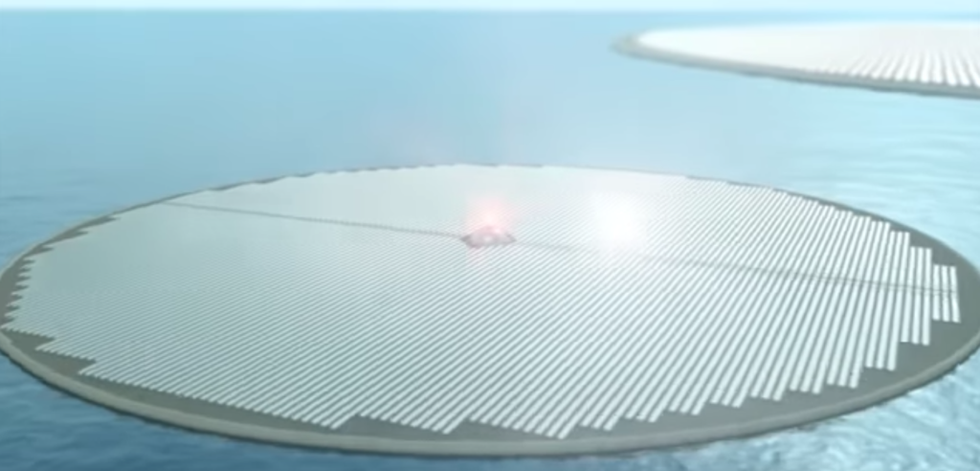As the climate change crisis grows more and more urgent, scientists are racing to develop ambitious ideas that will match the scope of the impending damage.
A group of Swedish and Norwegian scientists just submitted one of theirs.
In an article published to PNAS, the scientist propose developing millions of floating islands that would use photovoltaic cells to convert solar energy into electricity. That electricity would then power the islands' technology to convert carbon dioxide gases from seawater into methanol fuel.
The report stresses the need for humankind to end CO2 emissions from fossil fuel burning, the continues:
"[L]iquid carbon-based energy carriers are often without practical alternatives for vital mobility applications. The recycling of atmospheric CO2 into synthetic fuels, using renewable energy, offers an energy concept with no net CO2 emission."
It would take millions of individual islands with about 70 making up one facility, but the report's writers assert that it meets the urgency imposed by climate change, with about 3.2 islands putting enough of a dent in the pollution caused by burning fossil fuels.
Some can imagine getting on board with the idea.
Others have questions.
Though questions are rampant, one thing is certain: extreme steps must be taken to offset imminent damage from climate change and human recklessness.
















 @lindseyvonn/Instagram
@lindseyvonn/Instagram @lindseyvonn/Instagram
@lindseyvonn/Instagram @lindseyvonn/Instagram
@lindseyvonn/Instagram @lindseyvonn/Instagram
@lindseyvonn/Instagram @lindseyvonn/Instagram
@lindseyvonn/Instagram @lindseyvonn/Instagram
@lindseyvonn/Instagram @lindseyvonn/Instagram
@lindseyvonn/Instagram
 @kellyosbourne/Instagram
@kellyosbourne/Instagram